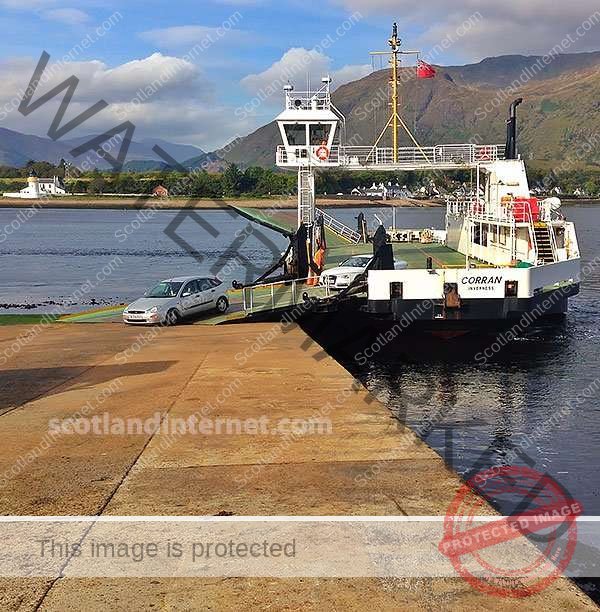The Corran Ferry, nestled in the heart of the Scottish Highlands, is more than just a mode of transportation – it’s a living thread connecting communities, history, and landscapes across Loch Linnhe. This short but vital crossing between Nether Lochaber and Ardgour is one of the last remaining mainland vehicle ferries in Scotland, offering both a practical lifeline and a scenic experience.

A Journey Through Time
Ferries have plied the Corran Narrows for centuries, serving as a key link in ancient cattle droving routes from the Hebrides to central Scotland. In the 1930s, the route featured a unique turntable ferry, allowing cars to drive on and off with ease. The current vessel, MV Corran, was introduced in 2001, replacing the long-serving Rosehaugh. Built in Hull for £2.9 million, MV Corran brought increased capacity and modern facilities to the route. Its backup, the MV Maid of Glencoul, launched in 1976, previously served at Kylesku before the bridge there rendered her redundant.
A Lifeline for Remote Communities
The ferry forms a crucial link between the A82 and the A861, connecting Fort William with the remote peninsulas of Morvern, Moidart, and Ardnamurchan. Without it, travellers would face a detour of over an hour around Loch Linnhe. The five-minute crossing operates seven days a week, with ferries running every 20 to 30 minutes. While pedestrians and cyclists currently travel free, a proposed £2 fare for foot passengers is under consideration to support the service financially.
Navigating Challenges and Looking Ahead
In recent years, the Corran Ferry service has faced challenges, including mechanical issues that led to significant disruptions. In response, Highland Council has secured funding for a new electric ferry and infrastructure upgrades, aiming to enhance reliability and sustainability. Plans include a new slipway, overnight berthing facilities, and improved marshalling areas.Scenic Highlights and Local Attractions
Beyond its functional role, the Corran Ferry offers passengers stunning views of the surrounding Highlands. On the Ardgour side, the historic Corran Lighthouse, built in 1860 and notable as the first automated lighthouse in Scotland, stands as a beacon of the area’s maritime heritage. Nearby, the Inn at Ardgour provides a welcoming spot for travellers to rest and enjoy local hospitality.
Planning Your Visit
For those looking to experience this unique crossing, it’s advisable to check the latest schedules and service updates via the Highland Council’s Corran Ferry page. Peak times often occur during weekday mornings and afternoons, as well as weekend mid-mornings and late afternoons.
Official Information
Corran Ferry – The Highland Council
Additional Resources
Corran Ferry – Wikipedia
Social Media Updates
Whether you’re a local resident or visitor exploring the Scottish Highlands, the Corran Ferry offers not only a means of travel, but also a connection to the region’s rich history and breathtaking landscapes.
